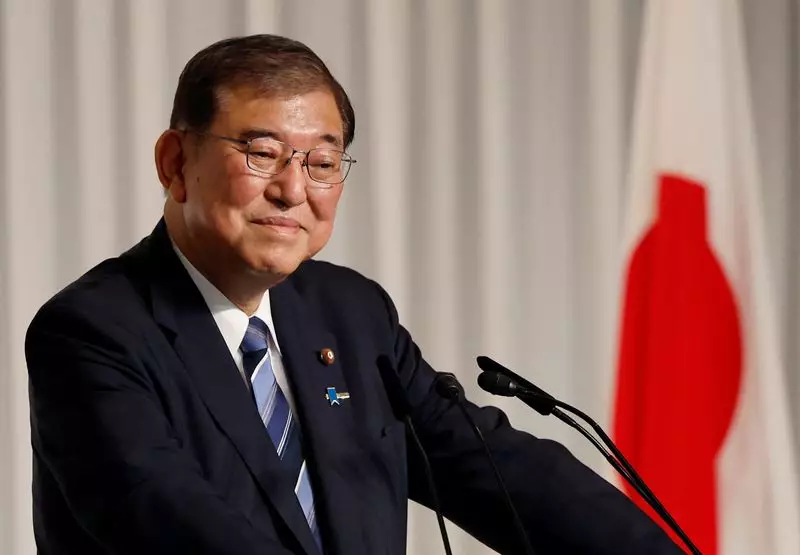Japan is poised for a significant shift in economic management as Shigeru Ishiba, the newly appointed leader of the ruling Liberal Democratic Party (LDP), prepares to take office as the country’s prime minister. In a recent television appearance, Ishiba signaled a commitment to maintaining a generally loose monetary policy while expressing a measured openness to potential rate increases by the Bank of Japan (BOJ). This move follows a series of pivotal changes in Japan’s financial landscape, particularly the BOJ’s recent exit from negative interest rates and the adoption of a cautious approach to monetary policy normalization.
Ishiba’s rise to leadership occurs in a political climate heavily influenced by the legacy of former Prime Minister Shinzo Abe’s “Abenomics” policies. The decision to maintain a non-confrontational stance towards rate hikes suggests a pragmatic approach that prioritizes economic stability over aggressive monetary expansion. Furthermore, his assertion that the BOJ should be the ultimate authority in determining interest rates indicates a respect for the central bank’s independence, which is essential in a time of economic uncertainty.
Undoubtedly, Ishiba’s economic agenda is influenced by the longstanding challenges Japan faces, particularly its struggles with deflation and stagnant growth. In his recent remarks, he emphasized the importance of helping the economy “fully emerge from deflation,” a promise to pivot towards stimulating domestic demand through measures aimed at boosting household incomes via wage increases. This acknowledgement highlights a critical aspect of the current Japanese economic narrative: the need for revitalized consumption.
Ishiba’s strategy appears to build upon outgoing Prime Minister Fumio Kishida’s policies, which have centered on enhancing wages and creating an environment conducive to economic recovery. His focus on household welfare through wage hikes reflects a broader understanding that without a corresponding increase in consumer spending, Japan’s economy is unlikely to regain its robust standing. The assertion that “unless consumption increases, the economy won’t do well” speaks to a pivotal recognition of the interdependence between wage growth and overall economic health.
The implications of Ishiba’s leadership on monetary policy could be profound. Analysts suggest that his ascension could remove barriers for the BOJ in its efforts to adjust interest rates further—a critical factor considering Japan’s prolonged experience with low growth rates. According to economist Kazutaka Maeda, Ishiba’s lack of strong preconceived notions regarding monetary policy signals potential flexibility for the BOJ, allowing it to implement necessary changes without political pushback.
Additionally, with Ishiba indicating a likelihood of focusing on fresh economic stimulus—particularly regarding food and fuel pricing—it suggests that his administration may actively seek to address immediate inflation concerns while simultaneously bolstering household consumption. As global economic uncertainty persists, Ishiba’s ability to balance these two objectives will be pivotal for a country that has struggled with its economic trajectory for decades.
Shigeru Ishiba’s imminent leadership in Japan heralds a nuanced transition in economic policy that balances the need for stimulus with the potential for monetary tightening. As he prepares to implement changes, the integration of wage growth strategies combined with a supportive stance on central bank operations presents a dual approach to stimulate consumer activity and manage inflation.
This upcoming period will be crucial for assessing whether Japan can break free from its stagnation, as Ishiba’s government must navigate complex domestic and international economic landscapes. The successful execution of his economic agenda has the potential to reshape Japan’s future, setting the stage for renewed growth and stability in a country yearning for prosperity. The coming months will determine whether Ishiba can deliver on this promise, steering Japan towards a brighter economic destiny.

